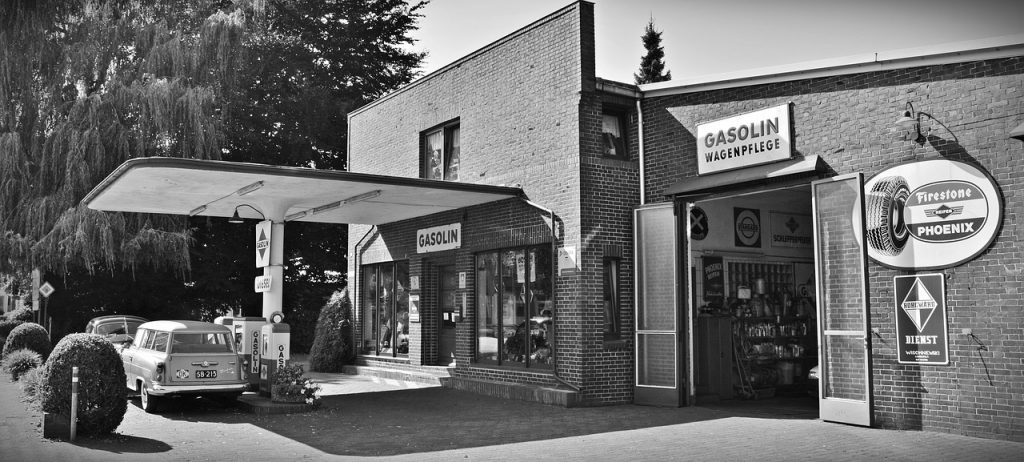A fuel filter is essential in any vehicle with an internal combustion engine. It is responsible for keeping the fuel system free of contaminants and debris that can cause damage to the engine, reduce fuel efficiency, and ultimately lead to costly repairs. This article will explore a fuel filter, how it works, and why keeping it in good condition is essential.
What Is a Fuel Filter?
A fuel filter is a small device typically located along the fuel line in a vehicle’s engine compartment. It is designed to remove fuel impurities, such as dirt, rust, or other debris, before entering the engine. The filter comprises a series of screens or meshes that trap these contaminants and prevent them from reaching the engine.
In most cases, fuel filters are made of a pleated paper element enclosed in a metal or plastic casing. The paper element is designed to capture particles more significant than the tiny pores in the paper while still allowing the fuel to flow through. Over time, the paper element can become clogged with debris, which reduces fuel flow and can cause engine problems.
How Does a Fuel Filter Work?
The fuel filter works by trapping any impurities in the fuel. When fuel enters the filter, it passes through the pleated paper element, which traps any dirt, rust, or other debris that is present. As the fuel continues to flow through the filter, it becomes cleaner and free of contaminants.
Most fuel filters include a bypass valve that allows fuel to bypass the filter if it becomes clogged or blocked. This prevents the engine from being starved of fuel and ensures it continues operating, even if the filter is not functioning correctly.
Why Is a Fuel Filter Important?
A fuel filter is essential in any vehicle with an internal combustion engine. Without a fuel filter, contaminants and debris can enter the engine and cause damage to critical components, such as the fuel injectors, fuel pump, and carburetor. This can lead to reduced fuel efficiency, poor engine performance, and costly repairs.
In addition to keeping the engine free of contaminants, a fuel filter also helps to ensure that the fuel system operates efficiently. By removing any debris or impurities from the fuel, the filter helps to prevent blockages in the fuel lines and injectors, which can cause the engine to run poorly or not at all.
How Often Should You Replace a Fuel Filter?
The frequency with which you should replace a fuel filter can vary depending on the make and model of your vehicle and your driving habits. In general, it is recommended that you replace your fuel filter every 30,000 to 40,000 miles or every two years, whichever comes first. However, if you frequently drive in dusty or dirty conditions, you may need to replace your fuel filter more frequently.
It is also important to note that some vehicles have a fuel filter inside the fuel tank. These filters are typically designed to last for the vehicle’s lifetime and do not need to be replaced unless there is a problem with the fuel system.
Signs That Your Fuel Filter Needs to be Replaced
There are several signs that your fuel filter may need to be replaced. These include:
- Reduced Fuel Efficiency: If your vehicle’s fuel efficiency has decreased, it may be a sign that the fuel filter is clogged and needs to be replaced.
- Engine Performance Issues: A clogged fuel filter can cause the engine to run poorly, with symptoms like rough idling, hesitation, or stalling.
- Check Engine Light: If the check engine light comes on, it may indicate a problem with the fuel system, including a clogged fuel filter.
- Difficulty Starting: A clogged fuel filter may prevent the engine from starting or cause it to take longer than usual.
Why Draining a Fuel Tank Is Important to Fuel Filters
Draining fuel tanks is essential for maintaining fuel quality and protecting fuel filters from the build-up of sediment and other contaminants.
Fuel tanks store fuel until it is needed for use in engines and other machinery. Over time, contaminants such as water, dirt, and rust can accumulate in the fuel tank, leading to clogged fuel filters. Clogged fuel filters can reduce the engine’s efficiency, cause poor performance, and even lead to engine failure.
Draining fuel tanks periodically can help prevent the build-up of contaminants and keep the fuel clean. The process involves opening the fuel tank and draining any sediment or water accumulated in the bottom. This is important for both diesel and gasoline engines, as both can be affected by fuel contaminants.
Conclusion
A fuel filter is essential in any vehicle with an internal combustion engine. It helps to keep the fuel system free of contaminants and debris that can cause damage to the engine, reduce fuel efficiency, and ultimately lead to costly repairs. By understanding how a fuel filter works and the signs that it needs to be replaced, you can help to keep your vehicle running smoothly and efficiently.
Do you need fuel filter maintenance and fuel drain service? Fuel Fixer is there to help you! To help you get moving, our nearby mobile unit is on call right now. We typically arrive in 46 minutes. Call us, stay safe, and we’ll fix your car while you wait.

